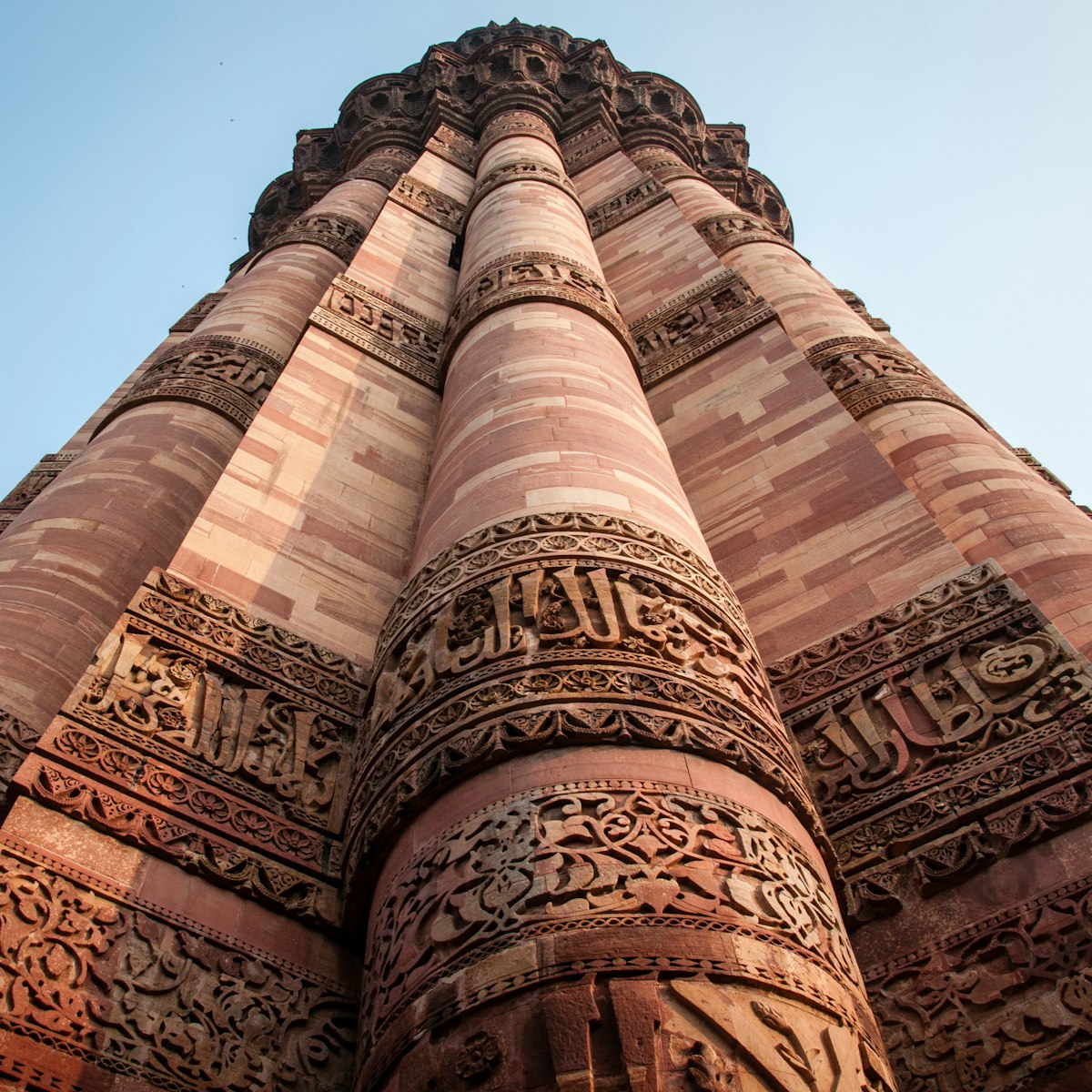A beautiful pocket of calm at the heart of Old Delhi's mayhem, the capital's largest mosque is built on a 10m elevation. It can hold a mind-blowing 25,000 people. The marble and red-sandstone structure, known also as the ‘Friday Mosque’, was Shah Jahan’s final architectural triumph, built between 1644 and 1658. The four watchtowers were used for security. There are two minarets standing 40m high, one of which can be climbed for amazing views.
There are numerous entrance gates, but only Gate 1 (south side), Gate 2 (east), and Gate 3 (north) allow access to the mosque for visitors. The eastern gate was originally for imperial use only. Entrance is free, but you have to buy a ₹300 ticket if you are carrying a camera of any sort (including a camera phone), even if you don't intend to take photos. Once inside, you can buy a separate ₹100 ticket to climb the 121 steps up the narrow southern minaret (notices say that unaccompanied women are not permitted). From the top of the minaret, you can see how architect Edwin Lutyens incorporated the mosque into his design of New Delhi – the Jama Masjid, Connaught Place and Sansad Bhavan (Parliament House) are in a direct line.
Visitors should dress conservatively and remove their shoes before entering the mosque, though you can carry your shoes with you inside if you wish to leave from a different gate, or are worried about losing them (many locals do this).








